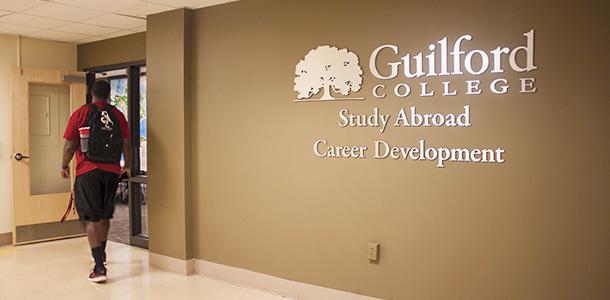Picture this: You work in a strenuous and demanding work environment. The stakes are high, and the pressure is on. You work 40 hours every week, and you’ve got bills to pay. Amongst all of these anxieties, you’re expected to survive with no wage.
It doesn’t sound plausible, but many internships work this way. Such situations are unfair to students desperate for experience in their field.
Some colleges endorse internship programs that take advantage of the time and energy provided by the interns. Students at New York University have reported that they’ve either been overworked or deprived of any actual experience after being forced to do menial tasks with no pay. They fought back by petitioning for the college to remove unpaid internships not in concordance with the law from their job search website.
The Fair Labor Standards Act, passed in North Carolina in 2010, protects unpaid interns from these conditions by mandating certain requirements.
The law includes provisions so that internships are similar to training that would be given in an education environment, the employer doesn’t receive any immediate advantages provided by the intern and that there’s an understanding between the employer and intern that they’re not entitled to earning a wage for the time spent in the internship.
Unfortunately, this doesn’t necessarily mean that all internships, or even all those for Guilford College students, abide by these regulations. It isn’t difficult for certain programs to manipulate students who are reliant on internships for experience and their degree, especially if the student does not have sufficient help with preventing an unfair environment.
Anna Rider, an English major and junior, was able to do an unpaid internship at a literary agency in New York City using funding from an endowment for English majors.
“I suggest students interested in internships reach out to their department and speak to their advisors before going to Career Development,” said Rider.
Rider expressed the unfairness of internships without compensation.
“Beyond the heady ‘this is wrong’ philosophical stuff, it gets even more complicated when the bottom line is that you can’t afford to even pay for rent in that big city where all the internships in your field are located, but you have to figure out how to get that experience, so you can find employment after you graduate,” said Rider.
Not everyone is able to get funding for internships. Anna Kelly, a sophomore, interned for the Bryan Series where she was unpaid and managed the marketing efforts for the Bryan Series amongst the students. She found this internship while working in the Career Development Center.
“They really make an effort to create opportunities that fit their students, rather than handing you a list and asking you to pick one,” said Kelly.
The Career Development Center has made efforts to create a comfortable and productive environment where students are able to thrive through extensive advisory and communication with the programs. They’ve made sure that many unpaid internship programs allow students to receive academic credit for their time and energy commitments.
Though the department can protect the students to an extent, there still exists risk for mistreatment beyond the process to acquire an internship, at least for some students.
Joe Metts, a junior, will be interning at the Greensboro Swarm office in the summer. His internship will be unpaid, but he’s gaining four academic credits for his time.
“Megan Walters gave me more help than I could have imagined, and I am extremely thankful for her and the opportunity she helped me get this summer,” Metts said.
Fortunately, many students at Guilford have had positive experiences with the Career Development Center and with the internships they’ve acquired, but there still exists the danger of exploitation.
The resources provided for students are helpful to lead the way to a suitable program, but they don’t necessarily protect everyone from corrupt employers who ignore the regulations.
If a student is sacrificing sleep, finances and time for an unpaid internship, it’s vital that we ensure they’re receiving the necessary experience and credentials that will create future job opportunities in their field.














